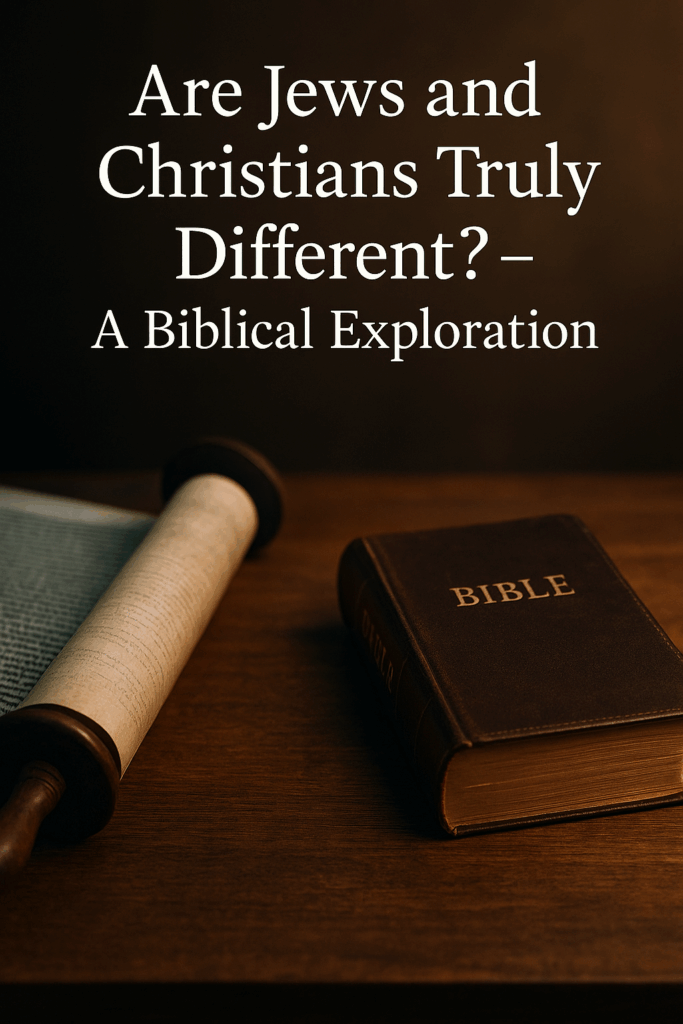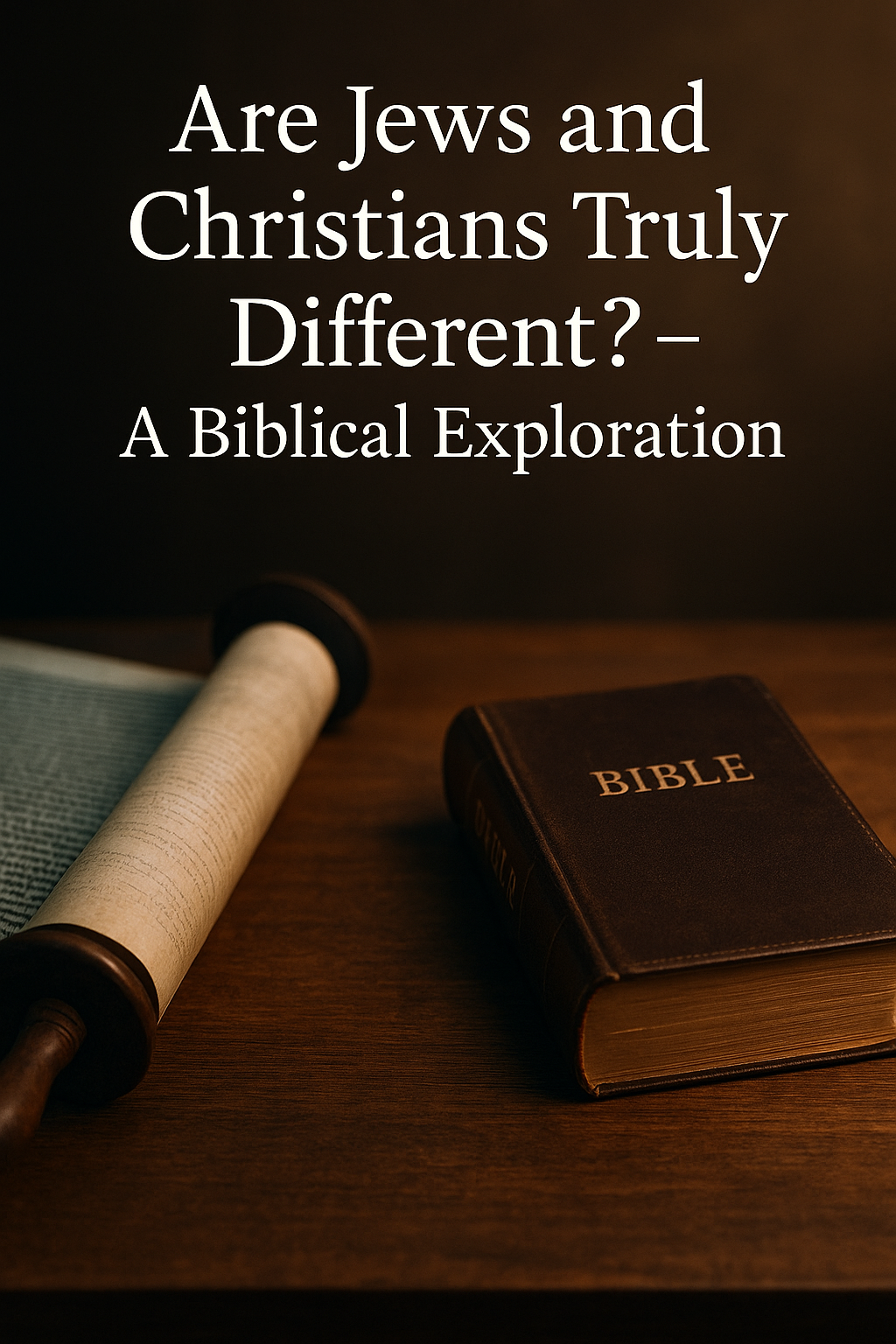Introduction
In today’s world, Christians and Jews are often seen as two separate religions. But what does the Bible really say? And how was their relationship at the beginning of the faith? Those who sincerely study the Scriptures and historical context soon realize: the lines between Jew and Christian are not as clear-cut as religious or social traditions might suggest.
This article seeks to uncover what the Bible teaches about the identity of God’s people – beyond denominations, doctrines, or religious labels.

There Is No Such Thing as “The Jew”
Many people are unaware that Judaism itself includes a wide range of branches – from Orthodox to Reform to Messianic Jews who recognize Jesus (Yeshua) as the Messiah. However, these religious divisions are largely man-made and do not reflect the unity described in the Word of God.
The Bible doesn’t distinguish between religious affiliations. Scripture consistently presents only two categories:
👉 God’s people – the faithful followers,
👉 Idolaters – those who do not serve the true and living God.
Whether we call ourselves Catholic, Protestant, Jewish, or Messianic is ultimately irrelevant if we are not sincerely following the Son of God in truth and obedience.
Two Houses – One People
After the death of King Solomon, the ancient kingdom of Israel was divided into two parts:
- The Northern Kingdom, known as the House of Israel, made up of ten tribes, and
- The Southern Kingdom, known as the House of Judah, with two tribes.
While Judah remained somewhat intact and became known as the Jewish people, the House of Israel intermingled with the nations and became “lost.” Yet God’s plan was never for them to remain lost.
Jesus himself referred to them when he said:
“And other sheep I have, which are not of this fold: them also I must bring, and they shall hear my voice; and there shall be one fold, and one shepherd.”
(John 10:16 – KJV 1611)
He was speaking of the scattered tribes of the Northern Kingdom. The restoration of the whole people of Israel – drawn from all nations – is a major theme throughout Scripture.
“And he shall send his Angels with a great sound of a trumpet, and they shall gather together his Elect from the foure windes, from one end of Heaven to the other.”
(Matthew 24:31 – KJV 1611)
“After this I beheld, and lo, a great multitude which no man could number, of all nations, and kindreds, and people, and tongues, stood before the throne, and before the Lambe, clothed with white robes, and palmes in their hands.”
(Revelation 7:9 – KJV 1611)
The First Christians Were Entirely Jewish
Jesus was born into the tribe of Judah. His disciples – not just the well-known Twelve – were also Jewish. Both Jesus and the apostles taught in synagogues to Jewish audiences. Their way of life was thoroughly biblical and Hebraic – not “church-like” in the way we often imagine today.
The earliest followers of the Messiah were simply a distinct movement within Judaism – small, controversial perhaps, but grounded in biblical truth.
In fact, they were referred to as a sect – a term that in ancient usage was not derogatory. It simply meant:
“A smaller group within a larger religious community that emphasizes distinct teachings or practices.” (Duden definition)
Is There Really a Difference Today?
Historically and biblically speaking: No.
The first believers in Christ were Jews. From God’s perspective, there is only one people of God – those who believe, obey, and follow Him, regardless of their ancestry or religious background.
The true identity of God’s people is not determined by religion, culture, or heritage – but by covenant loyalty to the living God and His Son.

Leave a Reply